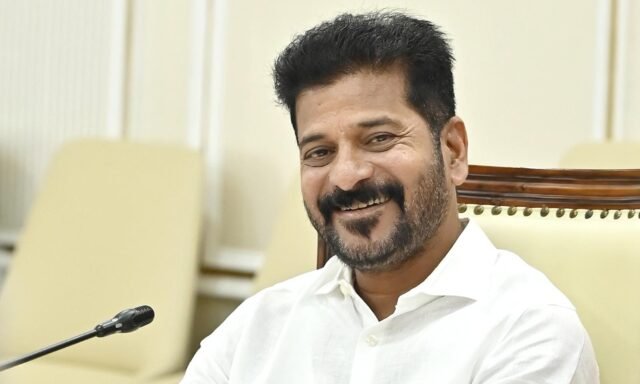HYDERABAD: In the next few months, Telangana could boast of having the world’s largest eyewear factory in Hyderabad. The city will have another iconic facility, Lenskart eyewear manufacturing unit, which apart from bringing an investment of Rs 1,500 crore to the state, will also provide employment to 2,100 people.
However, every development will have a story behind it. When Lenskart planned to build a factory that is bigger than its existing one in Rajasthan, Telangana was not even on its horizon. It approached one of the southern states for land to set up the facility.
A hawk-eyed squad in the Chief Minister’s Office (CMO) keeping an eye on investment moves across the country alerted Chief Minister A. Revanth Reddy about Lenskart’s proposal. He immediately directed IT and industries minister D. Sridhar Babu to get the project for Telangana and set up a task force to contact the Lenskart team.
The task force conducted the preliminary discussions with the founders of Lenskart in May.
“Since the company planned to export a third of its output to foreign countries, they wanted land near the airport. The government of our neighbouring state had agreed to allot land close to Bengaluru airport. So we promised to allot land which is closer to the airport in Hyderabad than Bengaluru. We also promised to have the Hyderabad airport allot a dedicated cargo line for Lenskart,” recalled Jayesh Ranjan, special chief secretary for IT and industries.
The Lenkart board considered the proposals of Telangana and chose Hyderabad in June. The Telangana government’s Empowered Group of Ministers (EGoM) formally approved the proposal in September and announced it to coincide with the Telangana government’s first anniversary celebrations.
Another factor that swayed Lenskart’s decision in favour of Hyderabad was the state government’s decision to establish the Skills University, which will create required manpower for the factory.
It is this decisiveness, and killer instinct that entrepreneurs bet on among government leaders.
“Time is money. Nothing illustrates this fact than several projects that overshoot its initial cost estimates because of the delayed implementation. That’s why entrepreneurs prefer to deal with a decisive leader who could deliver on his promises,” said Raghav Pallwai, a Hyderabad-based business consultant.
He said Chief Minister A. Revanth Reddy is one of the few decisive leaders that the Telugu states have seen. “His decisiveness could be seen in his actions ever since he joined politics.”
Big ticket projects hold a lot of promise for both the state as well as its leader. It was such decisiveness that made leaders hog the limelight.
“Though N. Chandrababu Naidu became famous as an architect of the United Front government, he became an iconic leader only after he dramatically squeezed time out of Microsoft chairman Bill Gates’ schedule and convinced him to set up Microsoft India Development Center in Hyderabad,” Srikanth Lingaiti, co-founder of S2 Integrators, an Atlanta-based IT company.
Similarly, Dr Y.S. Rajashekhar Reddy, who was considered an out-and-out welfarist leader, conceived and executed the Outer Ring Road — one of the most difficult projects — which improved city infrastructure and prevented the mess that other major cities are witnessing.
The credit for transforming Narendra Modi from a political outcast to a poster boy in Indian business circles also goes to his killer-instinct to get a similar big project for Gujarat.
In 2008, when Trinamul Congress chief Mamata Banerjee was standing between Tata Group chairman Ratan Tata and his dream to build a common man’s car, Tata Motors began to scout for alternative sites to set up a factory to manufacture its small car, which later on came to be known as Nano.
Several states, including Andhra Pradesh, came forward to woo the Tata Group. Apart from land, several incentives were offered. But the offer that upset the balance in favour of Gujarat was its then chief minister Narendra Modi offering Rs 456 crore loan at 0.1 per cent. Tata Nano went to Gujarat, propelling the rise of Narendra Modi in business circles as well as politics.
While Telangana has bagged several major projects bringing `2 lakh crore worth investments in the last one year, the Lenskart project would stand out as it is the world’s largest eyewear factory and it will have a positive ripple-effect in the investor community..
“If an investor finds that another investor has successfully grounded his project in a particular state without hassles, he will be more comfortable investing his money in that state. Being the largest eyewear factory in the world, Lenskart manufacturing unit will showcase Telangana as an investor-friendly and business-friendly destination. It will be a good branding for the state as well as the government,” said C. Shekhar Reddy, national vice-president, CII Green Buildings Council.
He said Revanth Reddy’s initiatives such as Regional Ring Road, Fourth City, Musi Project, and Metro expansion will address infrastructure woes of the city. “These projects will make Hyderabad stand out among other Indian cities and attract many more industries,” he said.
Hyderabad has several high-tech manufacturing industries in electronics, defence and aviation, and pharma, which require special talent. However, factories that Lenskart would be setting up to manufacture frames, lenses among accessories require semi-skilled workers, who could be trained appropriately for work. It is these kinds of factories that can produce a large number of jobs for the growing Indian population.
This was the strategy China followed when it opened up its economy. It focused primarily on getting low-skilled manufacturing jobs as a strategic entry point into the global market and surplus created such investment was rerouted to build the tech-intensive sectors.
Revanth Reddy wants to follow this successful strategy, which will make Telangana a centre for both hi-tech companies employing world’s top talent and factories of mass production, which provides livelihood to semi-skilled youth.
In line with this strategy, the Revanth Reddy-led Telangana government has already laid the strong foundation for attracting manufacturing companies by setting up Skills University which will produce an employable workforce for the state as well as the country. Skills University is a first of its kind in India, purely a brainchild of Revanth Reddy.
India is reported to have a large workforce which does not have skills that employers want. – According to a study conducted by the National Skill Development Corporation (NSDC), India has a demand for 10.3 crore skilled workers, but only has a supply of 7.4 crore workers.
With the newly proposed Skills University, abundant land and decisive leadership of Revanth Reddy, Telangana has addressed three major requirements of an entrepreneur in the manufacturing sector and it will give the state an edge over other states.
Thanks to this strategy, the state government has received proposals to invest nearly Rs 2 lakh crore in the last one year. Of this, investment proposals worth Rs 40,000 crore came during the Chief Minister’s visit to the World Economic Forum summit in Davos. Another set of proposals for investing Rs 33,000 crore came during the US and South Korea tour by a delegation led by IT and industries minister Sridhar Babu.
According to IT and industries minister Sridhar Babu, the Cabinet sub-committee had given approval for companies to the tune of Rs 1,44,330 crore in the last one year. Out of this, 16 were mega projects which will bring in investments worth Rs 70,000 crore. Once completed, these facilities will provide employment to 30,000 members.
Compared to the Congress government’s record, the minister had said that only 30 per cent to 35 per cent of the promised investments were grounded under the previous BRS government.
In the last year, the minister said the government has brought several hitech projects to the state, which include Cognizant’s new facility that would hire 15,000 people, Premier Energies’ advanced ingot and silicon wafer facility, Azad Engineering plant that makes superalloys, London Stock Exchange’s tech centre of excellence among others.
Apart from focusing on large companies, the Chief Minister is keen on encouraging startups to make tomorrow’s global leaders emerge out of Hyderabad. In the process, the government has launched several initiatives to support the startups and build a conducive tech ecosystem in the state by promoting artificial intelligence and machine learning in the state.






